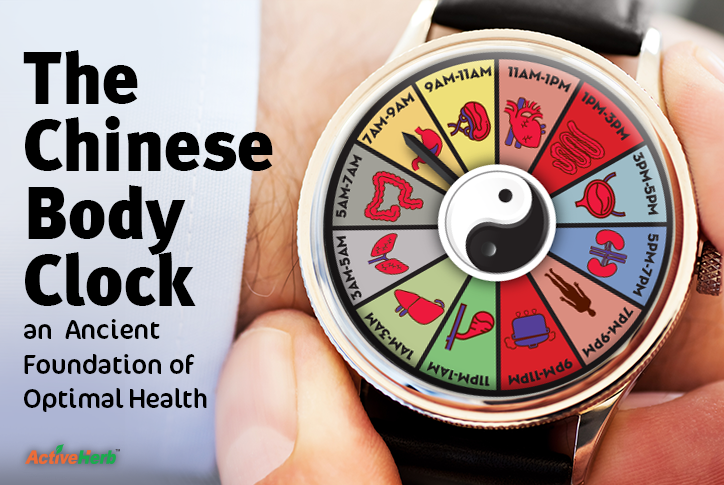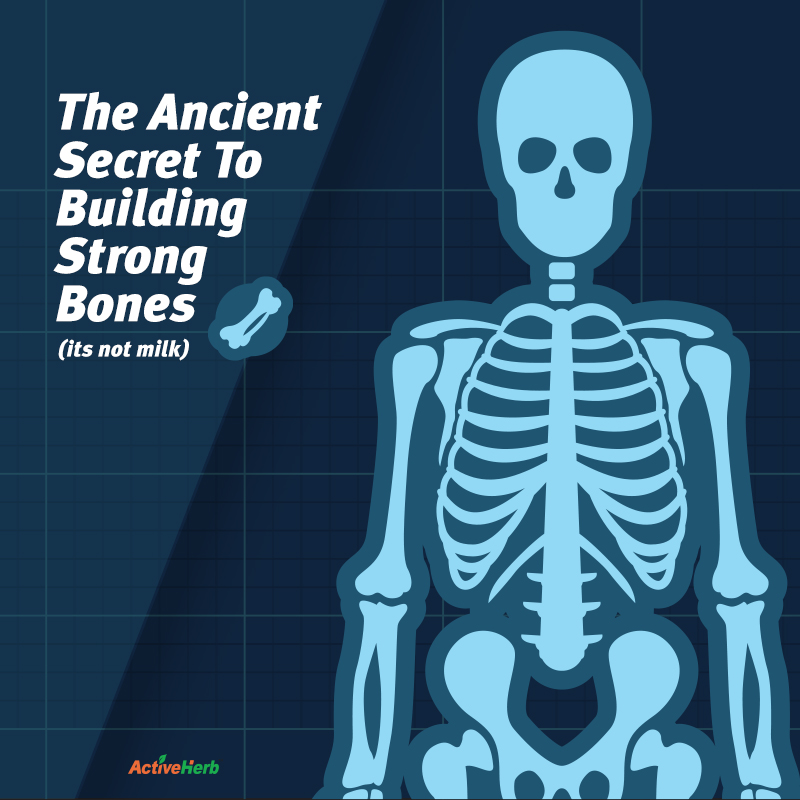Ancient Secrets of “The Chinese Clock”

The 5,000 year-old Chinese meridian clock is one of the best tools you can use to optimize your health. By understanding the basic theories of how the Chinese clock works, you can finally get in tune with your body’s natural rhythms. And once you understand the simple concepts of how the clock works, you’ll stop fighting and ignoring messages that your body is sending, that some of your organs are underperforming or overstressed.
If you’re wondering what the time of day has to do with optimizing your health, the answer is revealed in two-hour windows within each 24-hour-cycle. Each two-hour is associated with a particular organ. During this two-hour window, the organ is at its most active, and ideally, operates with the most abundant Qi it will have all day.
Let’s start by taking a look at the first organ that is at its most active when you’re (hopefully) in a deep sleep….
Lungs: 3 a.m. – 5 a.m.
If you wake up during this time coughing, it doesn’t take a doctorate in Chinese medicine to know that something is going on with your Lungs. (In TCM, organs are capitalized.) But beyond the obvious physical signs, the Chinese organs reveal clues about our psychological, emotional and spiritual health.
In TCM, the Lungs are emotionally tied to releasing things that no longer serve you. Just like the physical lungs expel unwanted carbon dioxide, the Lungs in TCM help you process the day’s events.
If you wake up during this time, you may find yourself feeling sad, or having unresolved emotional distress. This is the time of day when you should be sleeping deeply. If you want to work at letting go of things that no longer serve you, try waking up during this window and meditating. Go to sleep very early and wake up at 4:30 to meditate. Waking up at this hour isn’t for everybody, but if things are troubling you, give it a try for a week. The Lungs on a physical and spiritual level purify the body.
Large Intestine 5 a.m. – 7 a.m.
Large Intestine (LI) is the Yang metal organ paired with the Yin Lung organ. Like western physiology, in Chinese medicine, LI is associated with the elimination system. LI clears out the waste that our Lungs have determined we no longer need. According to TCM theory, during this two-hour window, you should have a healthy bowel movement shortly after waking up. Even if you don’t wake up during this time, if you’re not having a bowel movement within an hour or so of waking up, this is a sign of weak gut health. The colon is considered part of LI. If your colon is sluggish in clearing out waste, try drinking a warm glass of water after you wake up.
Stress can also impact gut health, so at this hour, practicing a body movement, stress-management technique such as yoga or Tai Chi is recommended.
Stomach 7 a.m. – 9 a.m.
Despite the weight loss trend of intermittent fasting, this is the time of day, when according to TCM philosophy, you should have a hearty breakfast. That’s because this two-hour window is when Stomach energy is strongest. Sure, the stomach is the organ associated with digestion, just as it is in Western anatomy.
But on a deeper level, ancient Chinese philosophy associates Stomach with having a healthy social life; feeling connected to community and your natural surroundings. During this time, if you’re having difficulty concentrating (brain fog) and you need a pick-me-up (caffeine), it could indicate poor Stomach function.
Spleen 9 a.m. – 11 a.m.
Now it’s time for the Yin earth organ that’s paired with the Yang Stomach: Spleen. In Western medicine, the spleen is associated with the immune system. But in TCM theory, the Spleen serves a critical role in digesting, assimilating and transforming food into nutrients for Qi and Blood. But on a deeper level, Spleen is associated with compassion and productivity. This is a time for hard work and problem solving.
If you find yourself fixating on the same problems, whether it’s work-related or a relationship issue, pay attention if you’re more likely to dwell on the issue during this time of day. And also pay attention to your digestion. If you’re ruminating about the same problems and have bloating or constipation, it’s a clear sign your Spleen needs a tune-up!
Heart 11 a.m. – 1 p.m.
Associated with the fire element, this Yin organ (Yin organs are more internal than Yang) is the seat of your consciousness and spirit. And just like in Western anatomy, the Heart is concerned with blood and circulation. The Heart also controls the other organs. If you experience a dramatic polarization in emotions, it’s a sign that Heart is imbalanced. But when the Heart is functioning optimally, you feel in control of your life—
even when external events are stressful and chaotic.
Small intestine 1 p.m. – 3 p.m.
Small Intestine (SI) is the Yang fire organ paired with Heart. Like other Yin organs (aka “Fu” organs; Yang organs are “Zang”), SI receives and digests food, absorbs nutrients, and transmits wastes through the elimination system.
If you feel low energy during this time of day, it doesn’t necessarily mean anything is wrong with your SI. This is the time of day when much of the world takes a siesta. Unfortunately, in our produce-or-fall-behind-culture, taking a nap is a luxury instead of a tradition. Even if it’s for only 10 minutes, try to rest and digest during this time.
Bladder 3 p.m. – 5 p.m.
This Yang water element helps restore your energy (and releases liquid waste), and this time of day is ideal for getting back to work and studying. If you’re female and feeling strong sexual energy, then you’re totally in touch with your body’s natural rhythms. Some women experience a peak of sex hormone activity during the Bladder time of day.
Kidney 5 p.m. – 7 p.m.
The Yin water element paired with Bladder, Kidney stores and produces your Essence (Jing). What does this mean in practical terms? Kidney governs reproduction, growth, and development.
Back discomfort is a physical sign of Bladder or Kidney weakness. And from a spiritual perspective, if you feel you’re lacking in creativity, wisdom or intuition, weakness in this organ could be impairing your flow of life. If you’re having a spiritual crisis about your life’s purpose and meaning, try strengthening your Kidneys. In addition, poor stamina can also indicate Kidney Qi deficiency.

Pericardium 7 p.m. – 9 p.m.
The Pericardium protects the Heart both physically and emotionally (In TCM, it’s called the “Heart Governor.) To have a happy, healthy Pericardium, and thus, a healthy Heart, connect with positive people in your life and avoid watching TV shows, movies and social media that agitates you.
Triple Burner 9 p.m. – 11 p.m.
The Triple Burner isn’t a physical organ. You can think of it as your body’s internal furnace system, not just for your body’s physiological functions but also for your spirit. From a physiological function, Triple Burner supports the immune system, which is why it’s crucial to rest during this time. If you chronically go to sleep after midnight, your immune system may not work as effectively as it could.
In some cultures, people practice “bi-phasic sleeping,” which is sleeping for a brief period of time early in the night, then waking up and going to sleep later. Try getting some sleep during this window, even if it’s just a nap.
Gallbladder 11 p.m. – 1 a.m.
This wood Yang organ is responsible, along with its Yin partner, Liver, for detoxification and clearing out impurities on a physical level. Having a strong Gallbladder function is essential for sharp mental clarity and decision making. If you’re having trouble making an important decision, sleep on it and let Gallbladder be restored. You’ll feel more clear-headed in the morning.
Liver 1 a.m. – 3. a.m.
This is the organ that governs your mood and overall energy flow. So if you’re angry, stressed out, irritable and tired, your Liver function could be weak. If you wake up during this time, it could be you had too much red wine, but it can also be a sign that there’s stagnant Liver Qi.
Also pay attention to your eyes. Are they red, itchy or do you have blurry vision? These are also signs of weak Liver function.
Everyone gets angry from time to time. But instead of acting on your anger, meditate on why you’re feeling angry and what you can do to release that anger in a positive way. If you’re waking up during the Liver window, the Chinese clock is telling you that there’s an imbalance in the body that needs to be addressed.
The ancient wisdom of the Chinese organ clock can help us feel more in tune with our body. Safe and effective Chinese herbal formulas may help resolve a wide variety of health topics caused by organ imbalances.
Recommended Reading From The ActiveHerb Blog:






